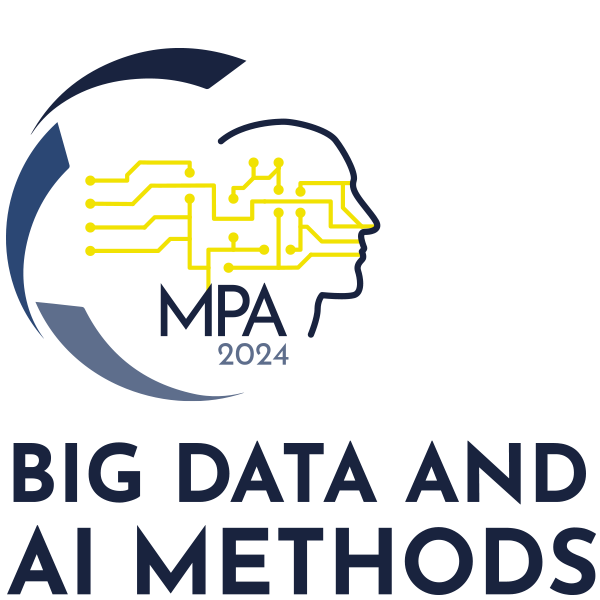Big data and AI
for material processing and engineering

October 9th. 2024
Big Data and A.I. Methods
for Material Processing and Engineering
Explore AI’s role in optimizing materials processes from discovery to application.
Discover how Big Data drives innovation, accelerates testing, ensures quality, and enhances sustainability in materials science and engineering.

- Materials Discovery and Design: Big Data can be used to compile vast databases of material properties, including structural, thermal, electrical, and more. AI algorithms can then analyze this data to identify patterns and relationships that may lead to the discovery of new materials with desirable properties. Machine learning models can assist in materials design by predicting how different combinations of elements and structures will behave.
- Accelerated Materials Testing: AI-powered systems can control and automate materials testing processes, improving efficiency and reducing human error. These systems can collect, analyze, and interpret data from various sensors, accelerating the testing of materials under different conditions, such as stress, temperature, and pressure.
- Predictive Maintenance: Using AI algorithms, you can monitor the health of materials and equipment in real time. Predictive maintenance models can predict when equipment, like turbines or pipelines, may fail due to material degradation, enabling proactive maintenance to prevent costly breakdowns.
- Quality Control in Manufacturing: AI can be used to ensure the quality of materials during the manufacturing process. Computer vision systems can inspect materials for defects, and machine learning models can predict the quality of finished products based on various input parameters, helping to reduce waste and improve efficiency.
- Supply Chain Optimization: Big Data analytics can be used to optimize the supply chain for materials. This includes demand forecasting, inventory management, and procurement. AI can help in predicting fluctuations in materials prices and availability, enabling better decision-making in sourcing and logistics.
- Energy Efficiency: AI algorithms can be used to optimize the energy consumption of materials processing operations. This includes processes like heat treatment, forging, and welding. By analyzing data from sensors and historical records, AI can suggest energy-efficient process parameters.
- Structural Health Monitoring: AI and Big Data can be used to monitor the structural health of infrastructure materials, such as bridges and buildings. Sensors and data analytics can provide real-time feedback on the integrity of materials, helping to prevent disasters and extend the lifespan of structures.
- Customized Materials and 3D Printing: AI can assist in the development of customized materials for specific applications. By understanding the requirements of a particular project, AI algorithms can guide the development of materials with tailored properties. 3D printing can then be used to manufacture components with these materials.
- Waste Reduction and Recycling: Big Data and AI can be applied to improve recycling and waste reduction processes. By analyzing the composition of waste materials and applying AI-driven sorting systems, it’s possible to separate and recycle materials more efficiently.
- Regulatory Compliance and Safety: AI can help ensure that materials and processes adhere to regulatory standards and safety requirements. It can monitor and flag deviations from safety protocols and suggest corrective actions.
- Collaborative Research: AI-driven platforms can facilitate collaboration among researchers and institutions by sharing data, research findings, and insights. This can accelerate the pace of materials science discoveries.
- Smart Materials: AI can be used to develop smart materials that can adapt to changing conditions, such as self-healing materials that repair themselves when damaged, or materials with responsive properties for different applications




